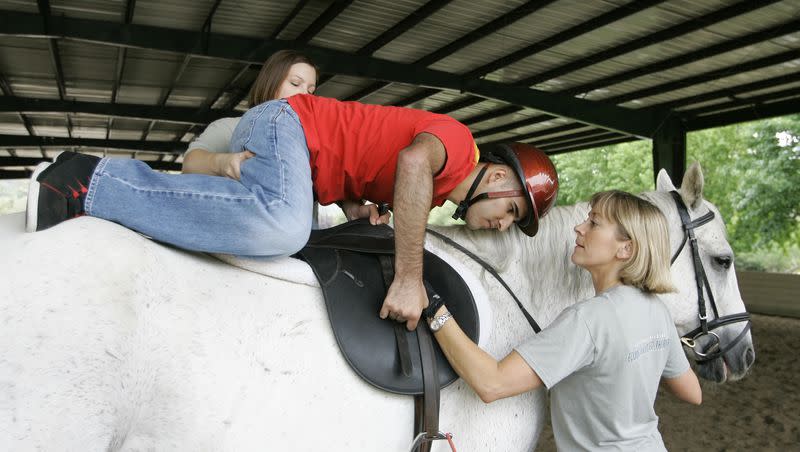Outdoor therapy, the new wellness travel trend

Approximately 4.4 billion people — more than half the global population — reside in urban areas, and that figure is projected to rise to nearly 70% by 2050, per National Geographic.
While cities offer numerous advantages, including economic opportunities and entertainment, they often lack a connection to nature. That’s one reason why many travel destinations, hotels and wellness centers worldwide offer outdoor therapies to guests.
What is outdoor therapy and how does it improve health?
Outdoor therapy is a type of ecotherapy, a broad term that includes various activities such as horse or wilderness therapy, according to The New York Times.
A study published by the National Library of Medicine found that spending time in nature has many benefits for both kids and adults. It makes people happier, healthier and more connected to others.
Kids who play outside tend to be more active and make friends easily. Adults who spend time in nature often feel less stressed and have better moods. They also tend to volunteer more and feel better about themselves, the study found. On the other hand, people who don’t spend time outdoors, especially when they were kids, may be less active, feel lonelier and eat less healthy food.
Travel destinations that use nature for therapy
National Geographic highlighted diverse locations around the world that are renowned for their ability to comfort both body and soul.
Using art as a tool for therapy, Artful Retreats offers sessions in Crete during which people can express their emotions and find peace through painting. Surrounded by the stunning Mediterranean landscape, participants explore their creativity and learn to tackle daily struggles in new ways. Regardless of artistic skill, everyone is welcome to join. The six-day retreat costs about $2026 per person.
Animal-assisted therapy draws on the bond between humans and animals to help patients feel at ease. Dogs are the top choice for therapy, followed closely by horses. At California’s Carmel Valley Ranch, you can join an equine connection session to interact with the ranch’s horses and practice mindfulness through horse-related activities. Each session costs about $178.
Floating in highly buoyant water can significantly decrease stress hormones and blood pressure, leading to a relaxed and sometimes euphoric feeling. It’s believed to boost creativity, strengthen the immune system and enhance sleep quality. For a meditation experience at a UNESCO World Heritage Site, visit the Retreat at Blue Lagoon in Iceland. Guests can float in the mineral-rich waters while wearing a special buoyancy suit. Prices start from about $64 per person.
Forest bathing in Hong Kong.
Forest bathing, known as shinrin-yoku in Japan, is a practice where you mindfully stroll through forests, finding peace in nature. This calming experience is not just relaxing; it has also been shown to boost your immune system and help with stress and anxiety. In Lung Fu Shan Country Park on Hong Kong Island, forest therapy guide Amanda Yik helps people experience the healing powers of the forest. Sessions start at about $159 per person.
Labyrinth walking in the U.S.
A labyrinth, unlike a maze, has a single winding path with no dead ends or wrong turns. Walking through it is meant to be calming. The labyrinth at Serenbe in Georgia uses Celtic symbols like the circle for life and the spiral for rebirth. It’s designed to help manage stress and promote personal growth. A session costs about $28.
Ocean therapy in the U.K.
Studies conducted on veterans experiencing post-traumatic stress disorder revealed several health advantages of being near the sea. They showed that the soothing sound of waves and the experience of watching them lap against the shore calmed the mind, reducing symptoms by up to 36%. Mark Smith, the founder of Kalm Horizons, hosts mindfulness sessions on the beach in Worthing, West Sussex. Each class is priced at about $64.
What to do if you can’t travel
Realistically, it’s not always possible to pick everything up and travel to a new location when you need some therapy. Therefore, Healthline has compiled some great ideas for outdoor therapies you can do at home.
Pickup trash around your neighborhood.
Try gardening.
Go stargazing.
Walk around the forest.
Take your regular activities outside.
Remember that while outdoor travel therapy is fun and healing, if more help is needed, visit a licensed professional.

